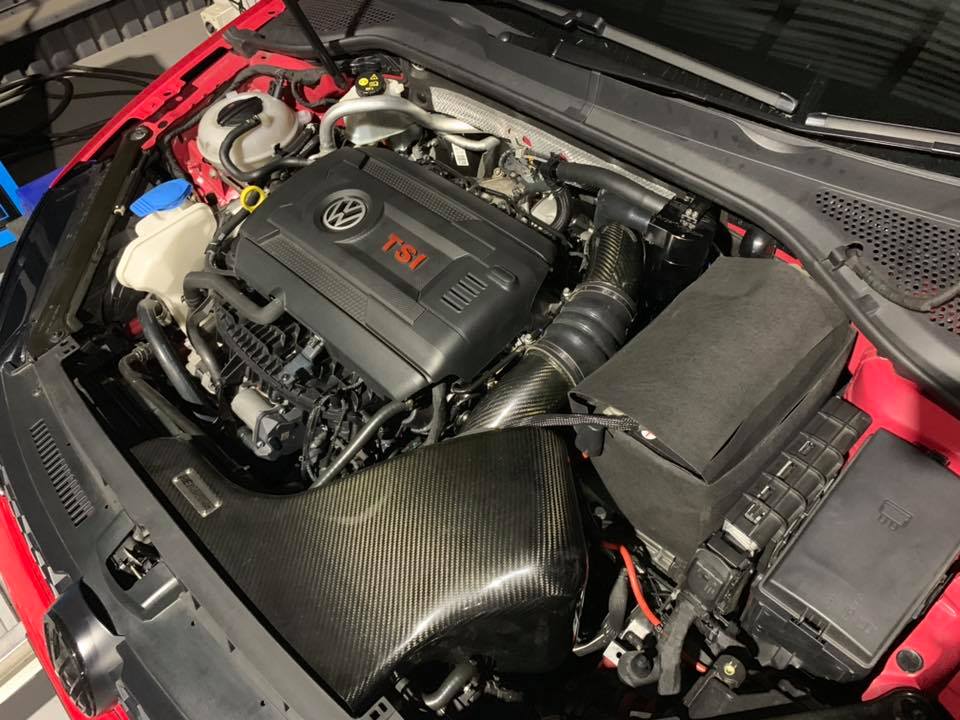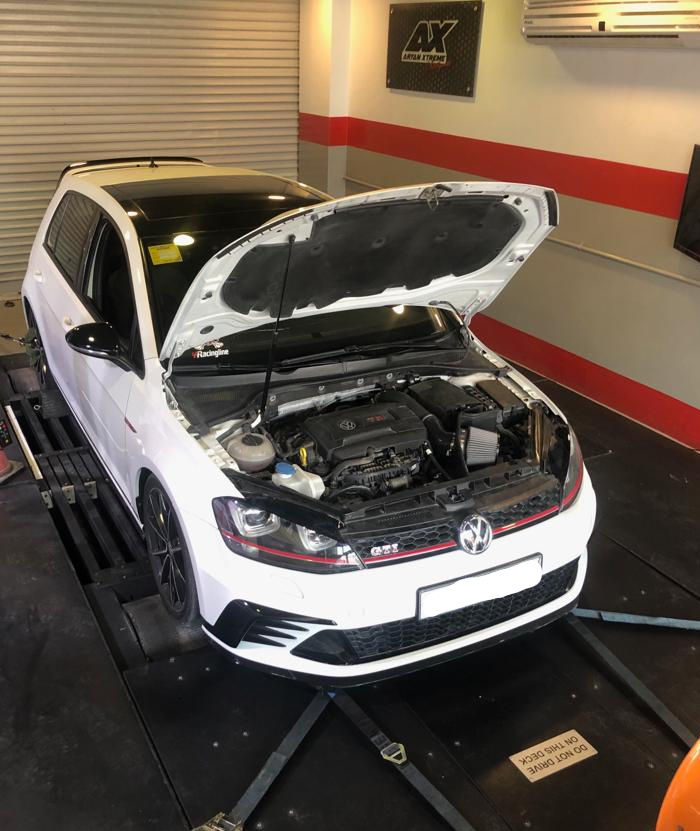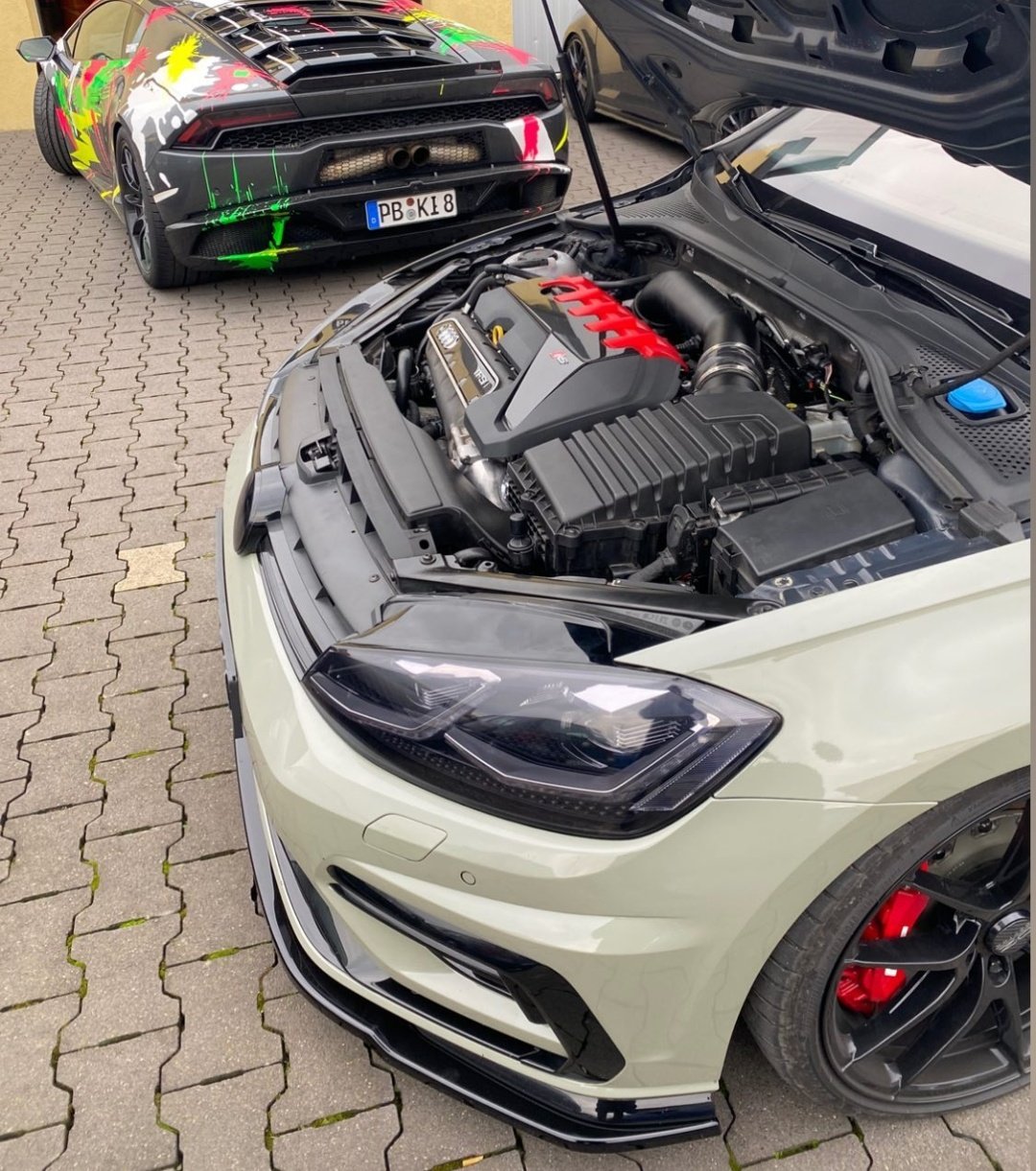Understanding the Golf 7 GTI Engine: Key Specifications and What They Mean for You
Understanding the Golf 7 GTI Engine: Key Specifications and What They Mean for You
Blog Article
Your Guide to the Golf 7 GTI Engine: Integrity and Upgrades
The Golf 7 GTI, geared up with its 2.0-liter turbocharged inline-four engine, stands for a balance of performance and reliability that interest enthusiasts and day-to-day motorists alike. Recognizing the variables that add to its stability, along with possible problems and their services, is important for making best use of the driving experience. Additionally, checking out various performance upgrades can substantially boost both power and effectiveness. The concern continues to be: what details upgrades can transform your GTI into a truly extraordinary vehicle while guaranteeing its long life?
Overview of the Golf 7 GTI Engine
The heart of the Golf 7 GTI is its 2.0-liter TSI engine, a turbocharged four-cylinder that delivers an outstanding mix of power and performance. This engine generates a durable 220 horse power and 258 lb-ft of torque, permitting the car to increase from 0 to 60 miles per hour in just 5.6 seconds, showcasing its stylish character. The turbocharged design not only improves efficiency but additionally optimizes gas performance, making it a sensible selection for day-to-day driving.
Including advanced innovation, the engine features straight gas injection, which enhances combustion efficiency and lowers exhausts. Furthermore, the Golf 7 GTI is equipped with either a six-speed handbook or a six-speed DSG dual-clutch automated transmission, offering motorists with the versatility to pick their favored driving style. The vehicle's front-wheel-drive design, integrated with a well-tuned suspension, makes sure active handling and a receptive driving experience.
Engine Reliability Aspects
Reliability is a crucial facet of any kind of performance-oriented vehicle, and the Golf 7 GTI's engine is no exception. Several variables contribute to the general dependability of this highly concerned powerplant, which is vital for both daily driving and perky performance.
First Of All, the Golf 7 GTI is equipped with a durable 2.0-liter turbocharged inline-four engine, understood for its efficient design and solid design. This engine includes a created steel crankshaft and light weight aluminum engine block, which offer superior stamina and longevity while decreasing weight.
Secondly, normal upkeep plays an essential function in enhancing engine integrity. Adhering to the maker's suggested service intervals, utilizing top quality lubricating substances, and replacing necessary elements such as spark plugs and filters can substantially prolong engine life.
Furthermore, the top quality of gas made use of can likewise affect dependability. Costs gas is recommended to ensure optimum efficiency and lessen the threat of knocking or ignition.
Lastly, the lorry's electronic management system constantly monitors engine parameters, enabling for real-time adjustments to optimize performance and efficiency while safeguarding against possible issues. Collectively, these factors underscore the Golf 7 GTI engine's reputation for integrity among fanatics and daily motorists alike.
Usual Concerns and Solutions
The Golf 7 GTI, while celebrated for its efficiency, is not without its challenges. Amongst one of the most frequently reported concerns are engine oil intake and turbocharger failings, which can considerably affect car dependability. Comprehending these usual problems and their services is necessary for maintaining optimum engine efficiency.

Engine Oil Intake
While lots of fanatics value the performance of the Golf 7 GTI, engine oil consumption can become a significant concern. Proprietors may see that their automobiles call for even more regular oil top-ups than anticipated, often connected to different elements inherent in the engine's style and operation.
One usual concern is the engine's direct gas shot system, which can cause boosted oil usage as a result of the combustion process. In addition, making use of high-performance driving routines can worsen oil burn-off, specifically under aggressive throttle problems. Motorists might also experience oil leaks from gaskets and seals, which can contribute to lowered oil levels.
To address oil consumption, routine upkeep is critical. Routine oil adjustments using top quality artificial oil can assist keep optimal engine performance and longevity. Keeping an eye on oil levels and performing timely checks can avoid prospective issues prior to they escalate. If extreme consumption persists, it may be advisable to get in touch with a specialist specialist to analyze the engine for potential interior issues, such as worn piston rings or shutoff seals. Taking on these practices can dramatically alleviate problems pertaining to oil intake in the Golf 7 GTI, ensuring a much more reliable and pleasurable driving experience.
Turbocharger Failures
Turbocharger failings can considerably impact the performance of the Golf 7 GTI, leading to reduced power and effectiveness. Oil leaks commonly stem from worn seals or harmed gaskets, which can lead to oil contamination and subsequent engine damages.
Another widespread trouble is wastegate failing, which can lead to overboost or underboost problems. If left unattended, this not only affects the automobile's performance but can additionally lead to severe engine damages. Updating to a more durable wastegate can boost dependability and performance.
Too much shaft play indicates wear in the turbocharger's bearings, which can cause a full turbo failure. Keeping track of boost pressure and paying attention for unusual sounds can aid spot this problem early.
To prevent turbocharger failings, regular maintenance, including oil changes and air filter replacements, is critical. Additionally, buying high-grade aftermarket parts may supply enhanced integrity and efficiency, ultimately improving the driving experience of the Golf 7 GTI.
Efficiency Upgrades to Think About
What efficiency upgrades can really elevate the driving experience of a Golf 7 GTI? To release the complete potential of this iconic warm hatch, several targeted modifications can improve power, taking care of, and overall driving pleasure.
One of the most reliable upgrades is a high-performance turbocharger. Changing the stock unit with an aftermarket choice can significantly enhance horse power and torque, providing a much more exciting acceleration experience. Matching this upgrade with a performance intercooler aids maintain optimum temperatures, making certain consistent power shipment.
Following, consider upgrading the exhaust system. A much less restrictive exhaust not only improves engine efficiency yet likewise creates a much more hostile noise that amplifies the vehicle's sporty personality. Pairing this with a remapped ECU will certainly enhance fuel distribution and ignition timing, further boosting efficiency.
Suspension upgrades, such as flexible coilovers, can enhance managing by decreasing the lorry's facility of gravity and lowering body roll. Additionally, a collection of high-performance tires will enhance hold, permitting sharper cornering and enhanced total security.
Together, these upgrades over at this website can transform the Golf 7 GTI right into a much more dynamic and awesome driving machine, making every journey a remarkable experience. golf 7 gti engine.
Suggested Upkeep Practices
Keeping the Golf 7 GTI engine calls for attention to essential methods that make sure optimal efficiency and longevity. Normal oil changes are vital for engine wellness, while prompt timing belt substitute is crucial to stop potential failures. Applying these maintenance methods will aid keep your lorry running smoothly and effectively.
Normal Oil Adjustments
Regular oil adjustments are crucial for the optimum performance and longevity of the Golf 7 GTI's engine. Maintaining a consistent oil modification routine makes certain that the engine operates smoothly and effectively. The recommended interval for oil modifications is generally every 5,000 to 10,000 kilometers, depending upon driving problems and the kind of oil utilized.
Utilizing high-grade synthetic oil is critical as it offers premium lubrication and thermal security contrasted to conventional oils. This is specifically essential for the Golf 7 GTI, which features a turbocharged engine that generates higher operating temperatures. Normal oil modifications help to get rid of pollutants and sludge accumulation, which can jeopardize engine performance and lead to premature wear.
Moreover, fresh oil improves gas performance and reduces unsafe discharges, adding to a cleaner environment. Throughout the oil adjustment process, it is also advisable to change the oil filter to make sure optimal filtration and avoid any kind of particles from getting in the engine. Sticking to these techniques not only assists keep the engine's stability yet also protects the worth of the lorry, making normal oil transforms a crucial facet of liable GTI ownership.
Timing Belt Replacement
The timing belt is a crucial element of the Golf 7 GTI's engine, in charge of synchronizing the rotation of the crankshaft and camshaft. This synchronization is vital for optimal engine efficiency and effectiveness. If the timing belt falls short, it can bring about catastrophic engine damage, making timely substitute crucial.

When preparing a timing belt substitute, it is suggested to also change the water pump and tensioner. These components function in conjunction with the timing belt and often experience similar wear, guaranteeing optimum efficiency and long life. Making use of OEM parts is suggested for their dependability and compatibility with the Golf 7 GTI's engine.
Specialist installation is highly encouraged, as incorrect installation can cause severe engine malfunctions. Routine maintenance of the timing belt not just shields the stability of the engine yet additionally enhances the general driving experience of the Golf 7 GTI. golf 7 gti engine. Prioritizing this task helps keep vehicle dependability and performance with time
Aftermarket Parts and Adjustments
Countless fanatics transform to aftermarket modifications and parts to boost the performance and aesthetics of the Golf 7 GTI. These upgrades can considerably boost the vehicle's responsiveness, taking care of, and total driving experience. Popular alterations include high-performance air consumptions, exhaust systems, and intercoolers, which can enhance horsepower and torque by maximizing air consumption and exhaust flow.
Suspension upgrades are likewise prevalent, with options varying from decreasing springtimes to fully flexible coilover packages that improve ride quality and cornering capacity. Updated brakes, including efficiency pads and rotors, other can offer better quiting power, guaranteeing safety and control during perky driving.
Visual alterations, such as aftermarket wheels, body kits, and personalized lighting, permit proprietors to customize their cars while maintaining a flashy appearance. Engine adjusting, whether with ECU remapping or standalone engine monitoring systems, can open added performance possibility, making the GTI much more thrilling to drive.
While aftermarket modifications can produce considerable advantages, it's vital to pick reliable brands and consider the potential effect on warranty and integrity. Proper installment and adjusting are crucial to make certain the longevity of the vehicle while enjoying the improvements.
Enhancing Fuel Performance
Improving gas effectiveness in the Golf 7 GTI can cause considerable cost savings and a minimized environmental effect. Achieving much better fuel economic situation requires a combination of driving behaviors, maintenance practices, and calculated modifications.
One efficient technique is embracing a smooth driving style, avoiding rapid velocity and hefty stopping, which can substantially lower fuel intake. Keeping this contact form ideal tire stress is likewise critical; under-inflated tires can increase moving resistance, bring about decreased efficiency. Normal maintenance, consisting of engine tuning and air filter substitutes, guarantees that the engine operates at peak performance, even more boosting fuel economic climate.
For those looking for upgrades, think about a performance tune that concentrates on effectiveness as opposed to sheer power. Eco-mode setups, if readily available, can readjust throttle response and change indicate make the most of gas savings. In addition, light-weight aftermarket wheels can lower weight and enhance effectiveness without jeopardizing performance.
Last but not least, using wind resistant improvements, such as a front splitter or back spoiler, can reduce drag at higher rates, adding to far better gas economic climate. By carrying out these techniques and modifications, Golf 7 GTI owners can take pleasure in boosted gas effectiveness while preserving the car's spirited driving attributes.
Final Thought
In conclusion, the Golf 7 GTI engine exemplifies a blend of efficiency and integrity, driven by a well-engineered 2.0-liter turbocharged inline-four. Different efficiency upgrades and aftermarket adjustments can enhance driving experience while keeping reliability.
The Golf 7 GTI, equipped with its 2.0-liter turbocharged inline-four engine, represents a balance of efficiency and dependability that appeals to lovers and daily drivers alike. Routine oil modifications making use of premium synthetic oil can aid keep ideal engine performance and long life.Routine oil modifications are necessary for the ideal performance and durability of the Golf 7 GTI's engine. Normal servicing, including engine tuning and air filter substitutes, guarantees that the engine runs at peak efficiency, even more boosting gas economy.

Report this page